- Home
- Thomas Harris
Cari Mora Page 18
Cari Mora Read online
Page 18
Into the mangroves, onto Bird Key. Stumbling through the trash on the ground, the washed-up detritus from the pleasure boats, the flotsam from the river, broken coolers, bottles, plastic jugs, running, seeing the white objects in the dim light under the trees, stumbling over darker things, the smell of guano strong. Much muttering from the nesting birds, the sleeping flocks stirring in the trees, a loud disturbance among the ibises.
There were no clear paths, only a few overgrown trails.
It took a few moments for Hans-Peter to get his darts and drop his anchor against the rising tide, then he was in the water too, chambering a dart and wading with his long legs toward the dense mangroves at the edge of Bird Key, his pistol in his belt and his tranquilizer rifle and a flashlight in his hands.
He needed to make this pretty fast—the Marine Patrol might check his boat. It was hard going through the clumps of mangroves to reach solid ground with his hands full with his rifle and flashlight.
Cari running, stumbling, near the place where she had saved the osprey. Any weapon would do. Anything, a club, please God, a fish spear, any damn thing.
A dead bird or two on the ground, tangled in fishing line. A broken rod. An empty Miller Lite case.
Clouds sailed under a pale moon, the dim moonlight pulsing as the clouds passed under.
A thousand birds murmuring and stirring, strident peeps from some chicks until they were quieted with a snack of regurgitated fish.
A night heron worked the edges of the mangroves, stepping high, freezing with its snakelike neck cocked to strike. The night was alive.
Cari searched for a weapon on the ground until she heard Hans-Peter thrashing in the mangroves as he came ashore and then she was very quiet, pressed back into the brush, watching the pale moon shine on Hans-Peter’s head. He was passing close, he had his pistol in the back of his waistband. He was wearing Antonio’s earring. He would pass her in the small clearing where the osprey had hung.
She eased backward into the brush; maybe she could come up behind him and get the pistol. Ease back, move your foot side to side to clear the ground before you put your weight on it. Don’t crackle.
A parrot flushed just above her with a loud shriek, flapping away, and Hans-Peter spun toward her, leveled the tranquilizer rifle and it cracked, the dart whizzing past her ear and he was on her, she kicking a hard one into his thigh and he was on her and she was down on her back in the brush, her hands inside against her chest. Hans-Peter was very strong, his forearm across her throat, and he was feeling in his pocket for another dart to stick in her by hand. Something touched her face, dangling from him, and she saw he was wearing her cross of St. Peter. He changed hands to find his other pocket and in the change she could butt, she butted, she butted. Her hand found the hanging cross and she snatched out the blade. It was short but not too short. She stabbed him in the soft spot behind his chin, stabbed, stabbed beneath his jaw, wagged the blade from side to side. It went up into his mouth and cut the big blood vessels under his tongue as it was made to do. He sat up choking, clutched at his face, coughed sprays of blood. She writhed from under him, he reached back for his pistol but grabbed his throat again, blew blood out his nose, and it was pumping down his chest, black in the moonlight. Heaving, bending over, away from her. Cari jerked the pistol from the back of his waistband and shot him in the spine. He slumped against the tree where the osprey had hung. He sat with his back against the tree and looked at her in the moonlight. She looked back. She looked him in the face without blinking until he died and she went to him and took back her cross.
And there they would find him in days to come, the authorities, called by some bird-watchers in a boat. They would find him sitting against the tree, buzzards on both his shoulders like the dark angels of his nature, mantling him with their black wings while they ate the soft parts of his face, his silvered canine teeth gleaming, getting the light all the time now.
Daylight was coming. The rookery stirred. Great splattings on the ground, the first flocks were up and circling, the white ibises incandescent banking across the first light. The vast roosts trembling and alive.
The light was coming up in the east. Cari could see the causeway from Bird Key, the aircraft warning lights above the Seabird Station dimming as dawn dimmed the stars. The Seabird Station, where her schoolbooks were, her bag of Vigoro, her student ID card for Miami Dade College.
Cari made some water wings with two gallon jugs, one with its cap and the other capped with a scrap of plastic bound with fishing line. Wearing her water wings, wading into the bay, not looking back, Cari swam toward the morning.
Miami Beach, Florida
2018
Discover Your Next Great Read
Get sneak peeks, book recommendations, and news about your favorite authors.
Tap here to learn more.
About the Author
Thomas Harris is the author of five novels and may be best known for his character Hannibal Lecter. All of his books have been made into films, including most notably the multiple Oscar winner The Silence of the Lambs. Harris began his writing career covering crime in the United States and Mexico, and was a reporter and editor at the Associated Press in New York.
Novels by Thomas Harris
Hannibal Rising
Hannibal
The Silence of the Lambs
Red Dragon
Black Sunday
ACKNOWLEDGMENTS
My thanks to the Quaker United Nations Office for the field studies “The Voices of Girl Child Soldiers” by Yvonne E. Keairns, PhD.
Sergeant David Rivers (ret.), Miami-Dade Police Homicide Bureau, included me in a series of excellent homicide investigation seminars where he taught and wrote the curricula.
The Pelican Harbor Seabird Station rehabilitates injured birds and animals to resume life in the wild. It is a remarkable humane institution supported by donations and volunteers. The station welcomes visitors.
Most of all, my thanks to this place—Miami—savory and beautiful, an intensely American city built and maintained by people who came from somewhere else, often on foot.

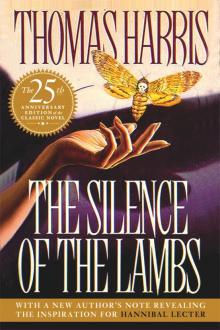 The Silence of the Lambs
The Silence of the Lambs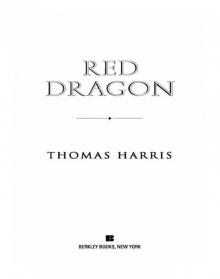 Red Dragon
Red Dragon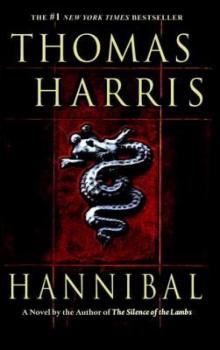 Hannibal
Hannibal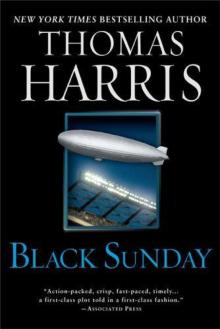 Black Sunday
Black Sunday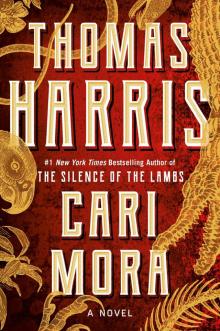 Cari Mora
Cari Mora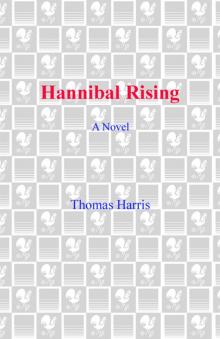 Hannibal Rising
Hannibal Rising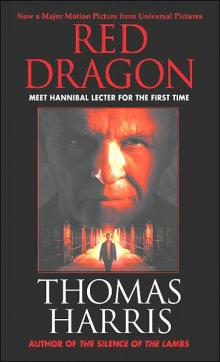 Red Dragon hl-1
Red Dragon hl-1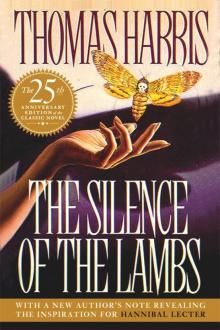 The Silence of the Lambs (Hannibal Lecter)
The Silence of the Lambs (Hannibal Lecter)